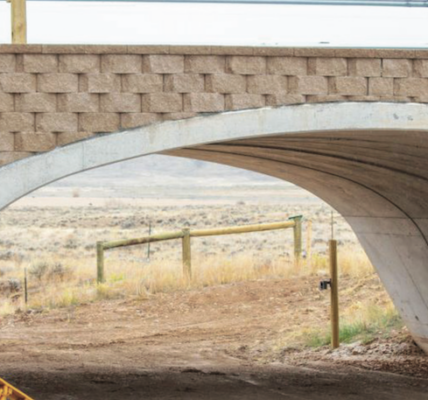“A normal reaction to an abnormal situation” is how therapist Kipp Dana described the anxiety one feels in the wake of the COVID-19 pandemic.
“These are unusual circumstances, and it is stressful. It wouldn’t take a diagnosed mental illness to be feeling a lot of pressure,” Dana, executive director of High Country Behavioral Health, said. “We’re not only got cooped up at home, but also real anxiety, listening to the news, this wave of illness sweeping across the country. And it’s like, ‘When is it going to hit me and mine and in our community?’”
But there are coping mechanisms that not only help in the short term as the country – and especially Star Valley – anticipate what medical experts are terming “flattening the curve” of the rate of the pandemic. In the long term, these coping strategies can also be tools for facing and “flattening the curve” to negative responses in any personal crisis.
For this purpose, SVI Media through both the SVI Radio Network as well as the Star Valley Independent gleaned information from mental and physical therapists for tips to calm anxieties and cope with what has been termed the “chronic uncertainty” of when life will return to normalcy. This article combines this information.
“We know this outbreak is likely stressful for people for many different reasons,” Dr. Alexia Harrist, the state health officer, recently stated. “The fears and worry we may experience can be at times overwhelming.”
However, one’s response is individual to that person’s background, “the things that make us different from other people and our communities,” said Matt Petry, senior administrator with the Behavioral Health Division of the Wyoming Department of Health.
He urged those with preexisting mental health conditions to continue their treatments as much as possible and take note of new or worsening symptoms.
“Wyoming’s community mental health providers are a good resource for help and their services are available regardless of ability to pay. Many local mental health providers are helping clients using Telehealth methods during this time.”
Petry said to contact local providers for available services. Advice from the WDH included taking breaks from news and social media, taking care of one’s physical health, and avoiding alcohol and drugs.
For Star Valley folks and those in the region, mental health services are offered by such providers as High Country Behavioral Health, which has 85 employees throughout Star Valley and up into Marbleton and Pinedale, as well as in Idaho; and from the counseling services offered at Bear Lake Memorial Hospital.
But a small number of everyday strategies – apart from professional help — stood out midst a plethora of advice from these experts. Reach out – adhering to virus safety protocols – to network with friends and family. Get outside in the sun. Exercise and eat right. Help someone.
And be patient. Dr. Anthony Fauci, the voice for U.S. epidemiology in recent media, has said, “You don’t make the timeline. The virus makes the timeline.”
In a Deseret News article from April 11, psychiatrist Judith Orloff encouraged meditation and focused breathing “in addition to connecting with a higher power or praying for additional patience and support,” wrote Sara Israelsen-Hartley in “Patience during a pandemic: What we can learn from a POW and a Roman slave-turned-philosopher.”
Express grateful, Carrie Haderlie of the Rawlins Times wrote in an article shared with Wyoming News Exchange, of which SVI Media is a member. Referencing Amber Smith of the Western Landowners Alliance Women in Ranching, Haderlie wrote: “Choose gratitude if it is at all possible. Write or tell someone in your life what you’re grateful for, and do that every day.”
For KSL.com online, blogger Susie Boyce wrote about the therapeutic nature of journaling. “… Journaling helps us manage anxiety, stress and depression by helping us prioritize problems, fears and concerns.”
And in dealing with what the World Health Organization is calling an “infodemic,” meaning an abundance of information – true and false, local mental health therapists like Shaun Tobler of Bear Lake Memorial Hospital recommend “limiting the amount of news you are consuming. Try to focus on positive, uplifting things.”
Tobler, director of counseling services at the hospital, spoke with Lisa Hillier of The Wave morning radio show recently. During the segment on The Wave, part of the SVI Radio Network, Tobler told Hillier that he has been seeing more positive postings on social media recently as people are asking how they can help others. “We have such a great community of volunteers who want to help.”
Tobler, who wore a donated mask made by such volunteers, said he found some tips by therapist Margie Donlon on Facebook recently and shared a few among 25:
n Stick to a routine.
n Get out, once a day. “This week, we have the sun out” at Bear Lake. He added that if “we’re stressed out, [kids] will see [the social distancing] as this terrible thing. If we are engaging with them, they’ll say, ‘I wish we could stay home more often.’”
n Find a spot where you can have some time alone.
n Look for ways to give back [to others]. “Making masks or donating to the cause. If you feel like you’re making a difference, that’s huge for feeling better.”
n Reach out for help. “If you need mental help,” Tobler added, “we are providing services.”
Dana related that High Country Behavioral is “on call 24 hours a day, seven days a week,” and that insurance companies are now jumping on board paying for Telehealth and other virtual services. Regardless of ability to pay, services are provided, sometimes based on a sliding fee scale, he added.
“I’ve been doing therapy since ’96,” he said. “All we do is talk. I don’t prescribe medicines. I just listen. People just need to be heard and understood.”
If you’re concerned about someone else’s mental or physical wellbeing, he said, reach out to law enforcement for welfare checks. And shelters are available if needed, he related, although with safety protocols some may house individuals in motels temporarily.
“Don’t pull yourself up by your bootstraps,” Dana urged, referring to the “cowboy ethic” of self-reliance. Seek help, if needed.
On the other hand, Dana acknowledged that the western ethic of self-reliance also includes a network of support not always found in more urban centers of the country and sometimes offers what even professional services doesn’t. “When I sit in the restaurant, I listen to conversations. They are seeking help from their natural support network and those relationships are very therapeutic.”
He said he recently heard his wife on a group online chat related to her church group. “They’re sharing and giggling. It’s about coming together for scripture study, but it’s more than that. It’s conversation. We need to reach out and connect.”
Dana suggested while in the home connect with others through positive social media. “And break out board games and have fun with each other.”
Go for walks, enjoy the outdoors and the sun – while practicing social distancing, he added.

Speaking of the outdoors and activity, Cache Kennington of Star Valley Health Physical Therapy, spoke of the brain’s reaction to prolonged anxiety and the flight or fight reaction. “Your mental state just worsens,” he explained
But if you get your blood flow and your heart rate up, your brain produces what is called a “brain derived neurotropic factor,” or BDNF. “It’s a protein found in the brain that aids in thinking, memory and learning.”
“Walking is great, as long as it’s a brisk walk. You’ve got to get the heart rate up,” Kennington said, adding that a recent study he read recommends yoga, run/walking and cycling as the top three best most advantageous activities.
He said Peak Fitness in Afton is sharing personal training workouts via Instagram, and such things as yoga is available on DVDs or online.
“They recommend at least 30 minutes a day, three days a week,” Kennington related. “What I thought was interesting was it didn’t have to be 30 continuous minutes. If you have time for three 10-minute walks, that still counts.”
And Kennington, Dana and Tobler all urged proper nutrition and avoiding junk foods and sugar to maintain physical and mental health.
Dana and Tobler both reminded residents that all services are available via Telehealth and other virtual connections. To reach High Country Behavioral Health, call 307-885-9883. To reach therapy services at Bear Lake Memorial Hospital, call 208-847-4464.
In addition, anyone experiencing or worried for someone with suicidal thoughts, can call the U.S. National Suicide Prevention Lifeline at 1-800-273-TALK (8255) or text “WYO” to 741-741 for the Crisis Text Line. In the event of an emergency, call 911.
For additional information, go to https://health.wyo.gov, https://starvalleyhealth.org or http://www.blmhospital.com.
— Some information for this article came from “How fear of the unknown sows disinformation during a pandemic” by Sofia Jeremias, Deseret News, April 10, 2020, “How to calm your mind and restore your hope during times of stress” from KSL.com and the Wyoming Department of Health.







